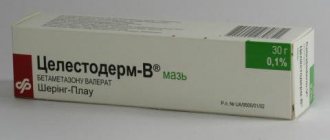Home | About us | Delivery | Advertisers | Login | Registration
Delivery on Sundays and holidays does not work!
- Medicines
- dietary supplementsVitamins
- Categories from A to Z
- Brands from A to Z
- Products from A to Z
- Medical equipment
- beauty
- Child
- Care
- Honey products appointments
- Herbs and herbal teas
- Medical nutrition
- Journey
- Making medicinesStock
Pharmacy online is the best pharmacy in Almaty, delivering medicines to Almaty. An online pharmacy or online pharmacy provides the following types of services: delivery of medicines, medicines to your home. Online pharmacy Almaty or online pharmacy Almaty delivers medicines to your home, as well as home delivery of medicines in Almaty.
my basket
Apteka84.kz is an online pharmacy that offers its customers medicines, medicinal and decorative cosmetics, dietary supplements, vitamins, baby food, intimate products for adults, medical equipment and thousands of other medical and cosmetic products at low prices. All data presented on the Apteka84.kz website is for informational purposes only and is not a substitute for professional medical care. Apteka84.kz strongly recommends that you carefully read the instructions for use contained in each package of medicines and other products. If you currently have any symptoms of the disease, you should seek help from a doctor. You should always tell your doctor or pharmacist about all the medicines you take. If you feel you need further help, please consult your local pharmacist or contact our GP online or by telephone.
© 2022 Pharmacy 84.
Bifren capsule
Instructions for medical use of the drug
Description of pharmacological action
Bifren is a derivative of γ-aminobutyric acid and phenylethylamine. Its dominant antihypoxic and antiamnestic effect is. Has tranquilizing properties, stimulates memory and learning, increases physical performance; eliminates psycho-emotional tension, anxiety, fear and improves sleep; prolongs and enhances the effect of sleeping pills, narcotics, neuroleptics and anticonvulsants. Does not affect cholinergic and adrenergic receptors.
Indications for use
Decreased intellectual and emotional activity, memory impairment, decreased concentration. Asthenic and anxious-neurotic states, restlessness, fear, anxiety, obsessive-compulsive neurosis, psychopathy; in children - stuttering, enuresis, tics; in elderly people - insomnia, night restlessness. Prevention of stressful conditions, before operations or painful diagnostic tests. Bifren is used as an adjuvant in the treatment of alcoholism to stop psychopathological and somatovegetative disorders during withdrawal syndrome. The drug can be used in conjunction with generally accepted detoxification agents for the treatment of alcoholic predilection and delirium. It is also prescribed for Meniere's disease, dizziness associated with dysfunction of the vestibular apparatus, and for the prevention of motion sickness. It is used in the complex treatment of women with osteochondrosis of the cervicothoracic spine and menopausal disorders.
Release form
capsules 250 mg blister, No. 10;
Pharmacodynamics
The drug lengthens the latent period and shortens the duration and severity of nystagmus. Noticeably reduces the manifestations of asthenia and vasovegetative symptoms, including headache, a feeling of heaviness in the head, sleep disturbance, irritability, emotional lability, and increases mental performance. Unlike tranquilizers, under the influence of Bifren, psychological indicators (attention, memory, speed and accuracy of sensory-motor reactions) improve. In patients with asthenia and in emotionally labile patients, from the first days of therapy with the drug, their well-being improves, their interest and initiative, and motivation for vigorous activity without sedation or agitation increase. It has been established that Bifren, used after traumatic brain injury, increases the number of mitochondria perifocally and improves the bioenergetics of the brain. In the presence of damage to the heart and stomach, Bifren normalizes the processes of lipid peroxidation.
Pharmacokinetics
The drug is well absorbed after oral administration and penetrates well into all tissues of the body, penetrating well through the BBB. Distribution in the liver and kidneys is close to uniform, but in the brain and blood it is less uniform. After 3 hours, a noticeable amount of administered phenibut is determined in the urine, at the same time the concentration of the drug in the brain tissue does not decrease, it is detected in the brain after another 6 hours. The next day, phenibut can only be detected in the urine; it is found in the urine 2 days after administration, but this amount is only 5% of the administered dose. The greatest binding of phenibut occurs in the liver (80%) and is not specific. Upon repeated administration, no accumulation was detected.
Use during pregnancy
The use of the drug during pregnancy or breastfeeding is contraindicated, since there is insufficient data regarding the use of the drug during this period.
Contraindications for use
Hypersensitivity to the components of the drug. Acute renal failure. Children's age up to 11 years.
Side effects
After the first use of the drug, drowsiness, nausea, dizziness, and headache are possible. Rarely - allergic reactions (skin rash, itching).
Directions for use and doses
Orally before meals with water. Adults are prescribed 250–500 mg 3 times a day. Highest single doses: for adults - 750 mg, for patients over 60 years old - 500 mg. The course of treatment is 4–6 weeks. Children over the age of 11 years - 250 mg 2-3 times a day. Bifren can be combined with other psychotropic drugs, this increases its effectiveness. In this case, you can reduce the dose of Bifren and other concomitantly used drugs. To relieve alcohol withdrawal syndrome, Bifren in the first days of treatment is prescribed 250–500 mg 3 times a day and 750 mg at night, with a gradual reduction in the daily dose to the usual dose for adults. To eliminate dizziness due to dysfunction of the vestibular apparatus of infectious origin (otogenic labyrinthitis) and Meniere's disease during an exacerbation, Bifren is prescribed 750 mg 3 times a day for 5-7 days, with a decrease in the severity of vestibular disorders - 250-500 mg 3 times a day for 5–7 days and then - 250 mg 1 time per day for 5 days. For relatively mild diseases, Bifren is taken 250 mg 2 times a day for 5–7 days, and then 250 mg 1 time a day for 7–10 days. To eliminate dizziness due to dysfunction of the vestibular apparatus of vascular and traumatic origin, Bifren is prescribed 250 mg 3 times a day for 12 days. To prevent motion sickness during sea navigation, a dose of 250–500 mg is prescribed once an hour before the expected start of motion sickness when the first symptoms of seasickness appear. The effect of Bifren increases with increasing dosage of the drug. In the presence of severe manifestations of seasickness (vomiting, nausea), the administration of the drug is ineffective even at a dose of 750–1000 mg. For complex treatment of women with osteochondrosis of the cervicothoracic spine and menopausal disorders, 250 mg 3 times a day is prescribed for the first 2 weeks, and 250 mg 2 times a day for the next 2 weeks. In case of moderate severity of vertebrogenic pain syndrome and menopausal disorders, it is recommended to use Bifren in a dose of 500 mg (250 mg 2 times) daily for 4 weeks of complex treatment of osteochondrosis. If one or more doses have been missed, continue taking the previously prescribed doses; if necessary, or if the patient’s health worsens, the patient should consult a doctor.
Overdose
Bifren is a low-toxic compound; only in a daily dose of 7–14 g with long-term use it can be hepatotoxic (eosinophilia and fatty liver have been noted). Symptoms: drowsiness, nausea, vomiting, possible development of arterial hypotension, acute renal failure. Treatment: gastric lavage. Therapy is symptomatic. In case of complications (arterial hypotension, renal failure), auxiliary and symptomatic measures are taken.
Interactions with other drugs
Bifren can be used with other drugs, including tranquilizers and antipsychotics, since their effects can be mutually reinforcing.
Special instructions for use
Caution should be exercised in patients with pathologies of the digestive tract due to the irritant effect of the drug. These patients are prescribed the drug in reduced doses. With long-term use, the cellular composition of the blood and indicators of functional liver tests are monitored. The ability to influence the reaction rate when driving vehicles or operating other mechanisms. Patients who experience drowsiness, dizziness or other central nervous system disorders during treatment with the drug should refrain from driving vehicles or operating other mechanisms. Children. The drug can be used in children over 11 years of age.
Storage conditions
In original packaging at a temperature not exceeding 25 °C.
Best before date
24 months
ATX classification:
N Nervous system
N06 Psychoanaleptics
N06B Psychostimulants and nootropic drugs
N06BX Other psychostimulants and nootropic drugs
special instructions
Caution should be exercised in patients with pathologies of the digestive tract due to the irritant effect of the drug bifren. these patients are prescribed lower doses. with long-term use, the cellular composition of the blood and indicators of functional liver tests are monitored.
Use during pregnancy or breastfeeding. The use of Bifren during pregnancy or breastfeeding is contraindicated, since there is insufficient data regarding the use of the drug during this period.
The ability to influence reaction speed when driving vehicles or other mechanisms. Patients who experience drowsiness, dizziness or other central nervous system disorders during treatment with the drug should refrain from driving vehicles or operating other machinery.
Pharmacological properties
Pharmacodynamics.
bifren is a derivative of γ-aminobutyric acid and phenylethylamine. its antihypoxic and antiamnestic effect is dominant. has tranquilizing properties, stimulates memory and learning, increases physical performance; eliminates psycho-emotional tension, anxiety, fear and improves sleep; prolongs and enhances the effect of sleeping pills, narcotics, neuroleptics and anticonvulsants. does not affect cholinergic and adrenergic receptors. the drug prolongs the latent period and reduces the duration and severity of nystagmus, and has an antiepileptic effect. significantly reduces the severity of asthenia and vasovegetative symptoms, including headache, a feeling of heaviness in the head, sleep disturbance, irritability, emotional lability, and increases mental performance. Unlike tranquilizers, under the influence of the drug bifren, psychological indicators (attention, memory, speed and accuracy of sensory-motor reactions) improve. in patients with asthenia and in emotionally labile patients, already from the first days of drug therapy, their well-being improves, their interest and initiative, and motivation for vigorous activity without sedation or agitation increase. It has been established that phenibut improves the bioenergetics of the brain. Pharmacokinetics. The drug is well absorbed after oral administration and penetrates well into all tissues of the body, penetrating well through the BBB. Distribution in the liver and kidneys is close to uniform, but in the brain and blood it is less uniform. After 3 hours, a noticeable amount of administered phenibut is determined in the urine; at the same time, the concentration of the drug in the brain tissue does not decrease; it is detected in the brain after another 6 hours.
The next day, phenibut can only be detected in urine; it is found in the urine 2 days after administration, but the detected amount is only 5% of the administered dose.
The greatest binding of phenibut occurs in the liver (80%) and is not specific.
Upon repeated administration, no cumulation was noted.
Indications
Asthenic and anxious-neurotic states (emotional lability, memory impairment, decreased concentration), anxiety, fear, anxiety, obsessive-compulsive neurosis;
- in children - stuttering, enuresis, tics; in elderly people - insomnia, night restlessness.
Prevention of stressful conditions, before operations or painful diagnostic tests.
As an adjuvant during the treatment of withdrawal syndrome in alcoholism.
It is also prescribed for Meniere's disease, dizziness associated with dysfunction of the vestibular apparatus, and for the prevention of motion sickness.

